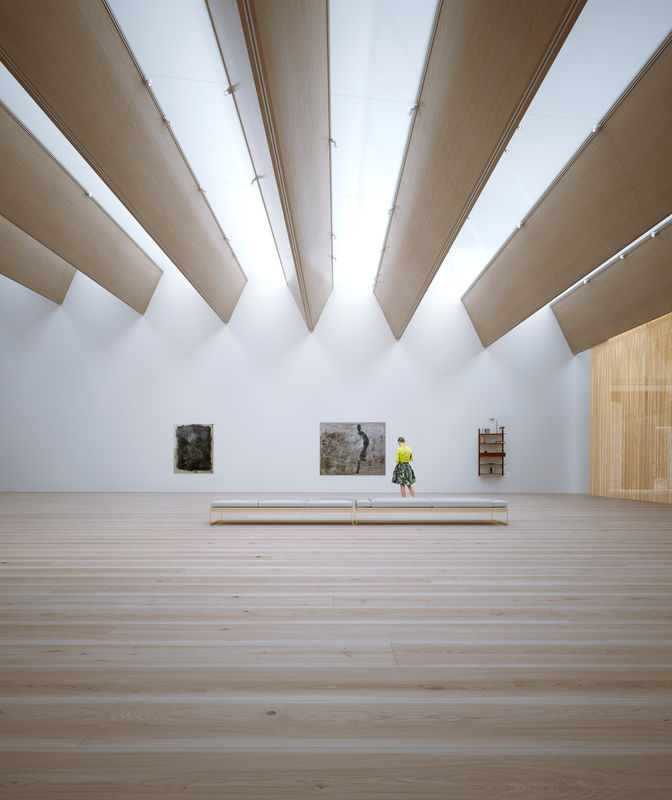By Jussi Rosendahl and Tuomas Forsell
HELSINKI (Reuters) - A plan to build a Guggenheim museum on the Helsinki waterfront - joining the likes of those that grace New York, Bilbao and Venice - appears close to collapse because of a political row.
It's all about money and austerity. The co-ruling nationalist Finns party has blocked state aid for its construction.
Presented in 2012 by the Solomon R. Guggenheim Foundation, the 120-140 million euro ($134-$156 million) plan has faced resistance from many Finns who consider it a waste of taxpayer money at a time of cuts to government welfare and schools that are part of a long economic downturn.
During budget talks last week, the eurosceptic Finns objected to the government covering 40 million euros in costs.
Promoters of the museum, by contrast, believe it would be a real boost for the city and the country, citing the example of the Bilbao Guggenheim which has helped to transform the Spanish city into a popular art and architectural destination.
Finland has long been proud of its tradition in artistic and industrial design, boasting names such as architect Alvar Aalto, fashion house Marimekko as well as Nokia's former mobile phone business, once the world leader.
A Guggenheim would fit in with that. Many of the museums are architectural masterpieces in their own right, regardless of what hangs inside. The one in Manhattan, for example, was designed by Frank Lloyd Wright, while Bilbao's is the work of Frank Gehry.
The foundation has already picked a design for the proposed Helsinki museum, hoping that a visual image would help bolster popular support for the project. It was described by the design jury as offering "a fragmented, non-hierarchical, horizontal campus of linked pavilions where art and society could meet and inter-mingle".
However, the Finnish economy has been struggling for a decade and the government is pushing through a multi-billion austerity to curb public debt growth.
"This is the end of the matter, we have ruled out state funding (for Guggenheim) once and for all, for this government," Sampo Terho, the parliamentary head of the Finns party, told Reuters.
"We are not opposed to the project as such, we just don't think it is something that the state should participate in."
TALKS TO CONTINUE
State funding has been considered crucial for the museum which the city sees as a national project and too costly just for the city and private donors to finance.
The Guggenheim Foundation said it will continue talks with the government and the city of Helsinki to find alternatives for the funding.
"We understand that it takes time. That said, we are disappointed that the project was not included in the budget," deputy director Ari Wiseman told Reuters.
The foundation has not set a deadline for the museum but reservation for the sea front plot expires at the end of the year, and an extension would need justifications.
Ari Lahti, the head of Guggenheim Helsinki Support Foundation in charge of collecting private donations, said the prospects looked challenging now.
"We do see end of the year as a mental deadline for the project to move ahead."
The debate has frustrated some in the business community, who see the museum as an opportunity.
"The project is extremely important for Finland and it's a real shame if it collapses," said Ari Tolppanen, the chairman of a Finnish hotel group Kamp Collection Hotels.
"The state would be by far the biggest beneficiary of the project due to a boost on taxes and employment. It is difficult to find any losers here."
